ENGLISH 10 REVIEWER Alliteration and Parts Of Speech, Creator Of Desiderata
1/20
There's no tags or description
Looks like no tags are added yet.
Name | Mastery | Learn | Test | Matching | Spaced | Call with Kai |
|---|
No analytics yet
Send a link to your students to track their progress
21 Terms
Creator of The Poem ‘‘Desiderata’’
Max Ehrmann
Birth And Death Date of Max Ehrmann
Born: September 26, 1872, Terre Haute, Indiana, United States
Died: September 9, 1945 (age 72 years), Terre Haute, Indiana, United States

is when vowel sounds are repeated, usually two or more times in short succession.
Assonance

is the repetition of consonant sounds in the same way as assonance.
Consonance

is the repetition of consonant sounds at the beginnings of words.
Alliteration
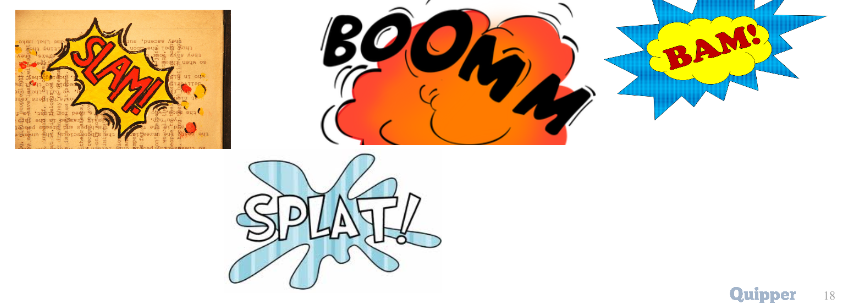
Words that are used to represent particular sounds.
ONOMATOPOEIA
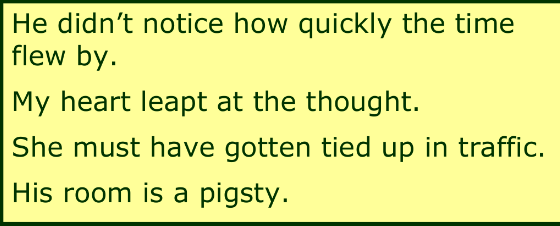
word or phrase that makes a comparison between seemingly unlike things.
(Ex. He collapsed onto the grass life a half-empty flour sack)
Figure Of Speech
Figures of Speech (13)
Simile
Metaphor
Personification
Apostrophe
Hyperbole
Euphemism
Antithesis
Oxymoron
Epigram
Irony
Pun
Metonymy
Synecodoche
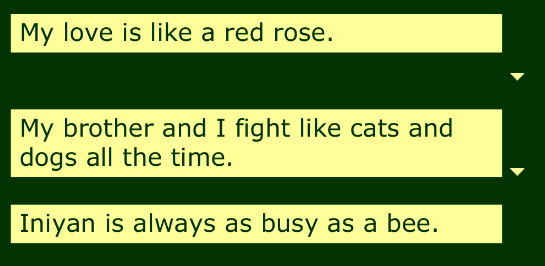
comparison between two unlike things, using a word such as like, as, than, or resembles.
Simile
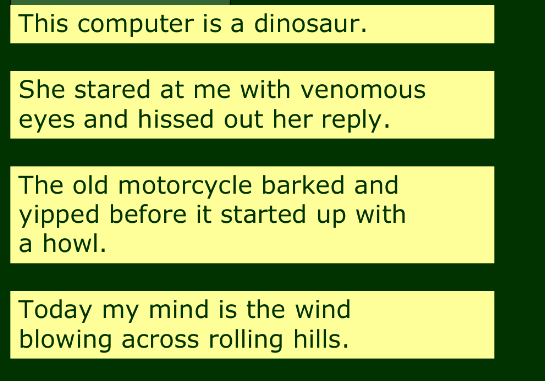
comparison between two unlike things in which one thing becomes the other
(DOES NOT USE LIKE OR AS
Metaphor

Gives human qualities to something that is not human — an animal, an object, or an idea
Personification

is used to address someone who is absent or already dead.
Apostrophe
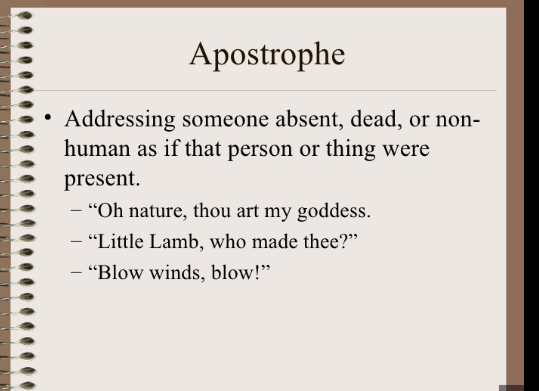
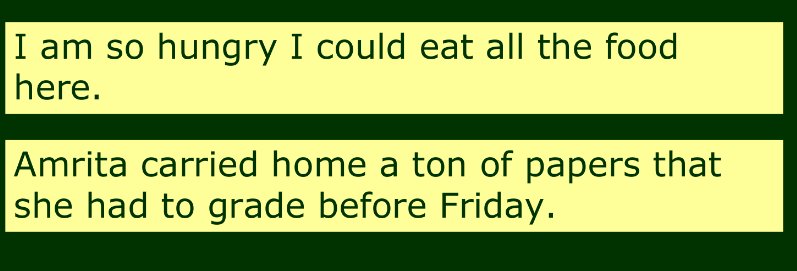
used to make something look and sound a lot better than it actually is.
Hyperbole
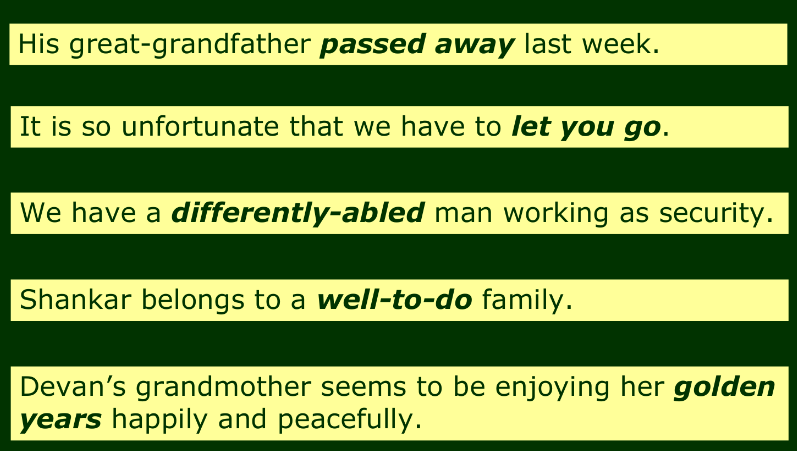
It is the art of communicating something in a less annoying and much lighter tone or in an indirect manner.
Euphemism
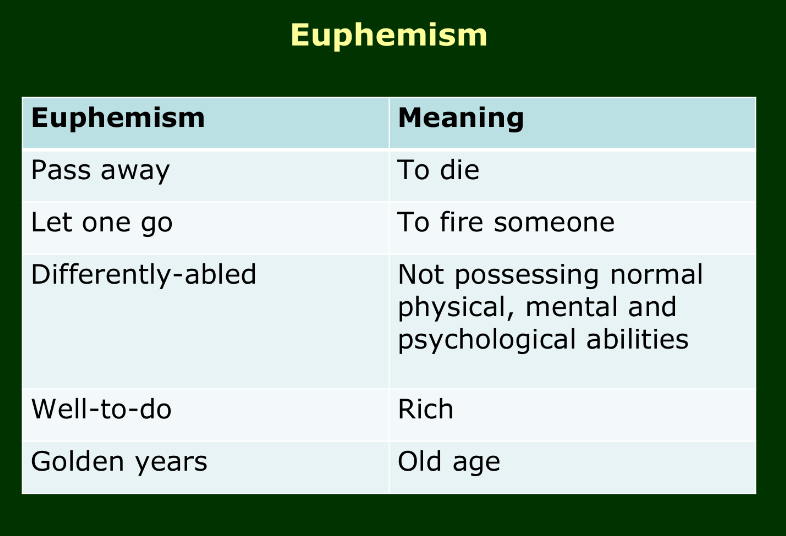

used to portray the stark difference between the two opposing ideas.
Antithesis
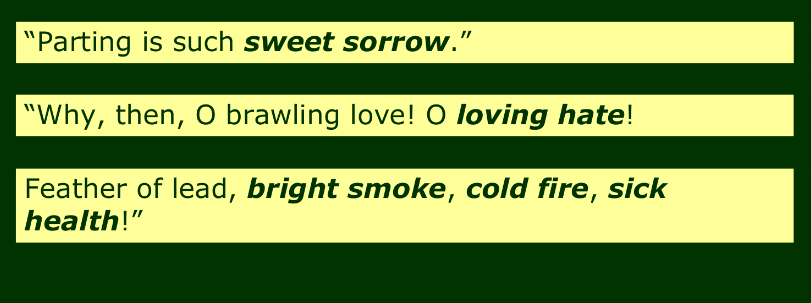
uses two opposite or contradictory terms one after the other in order to project an effect.
Oxymoron
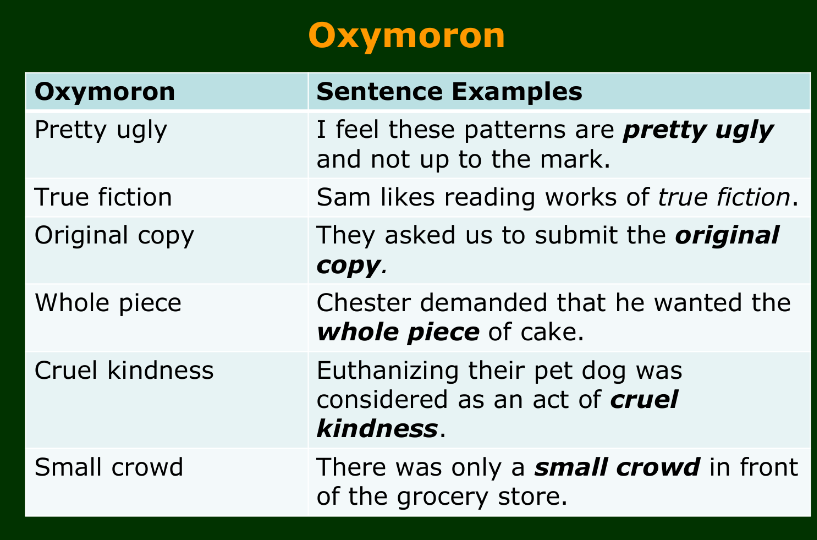
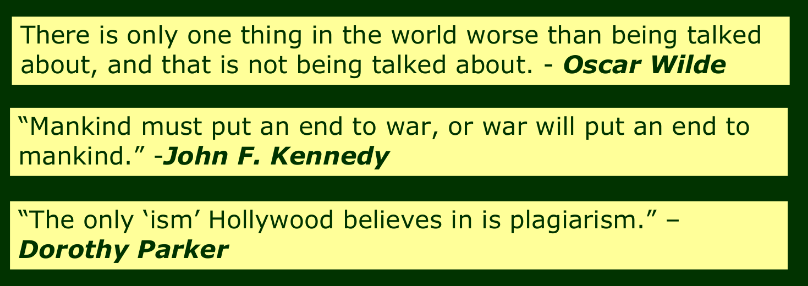
a short poem or phrase that expresses an idea in a clever or humorous way.
Epigram

used to express an intended meaning by using language that conveys the opposite meaning when taken literally.
Irony
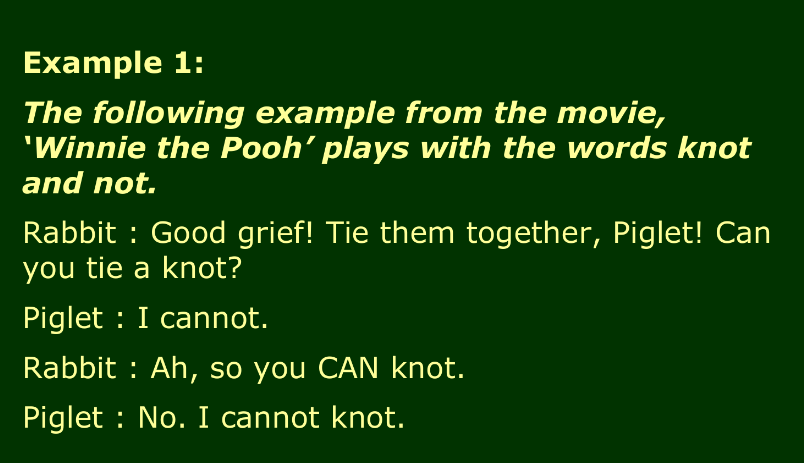
Equals Fun, includes a play of words that have more than one meaning or those that sound alike.
Pun
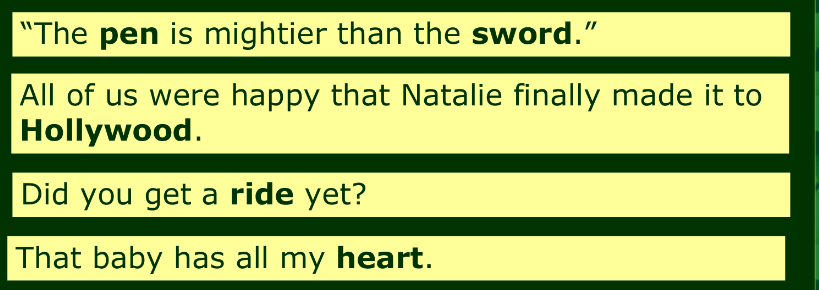
is formed by the use of a term (the name of an object or an idea) to substitute another term that is closely related to the thing or idea.
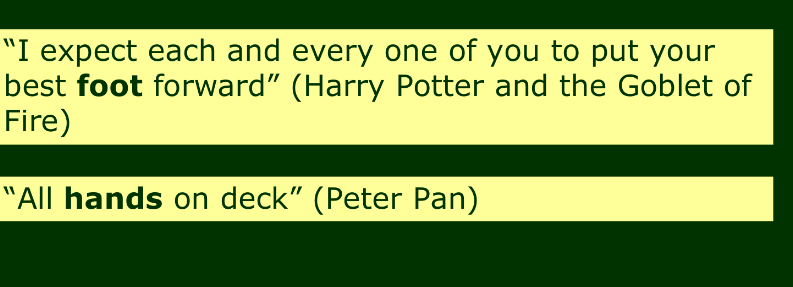
makes use of a term that refers to a part of something to substitute for the whole thing.
Synecdoche